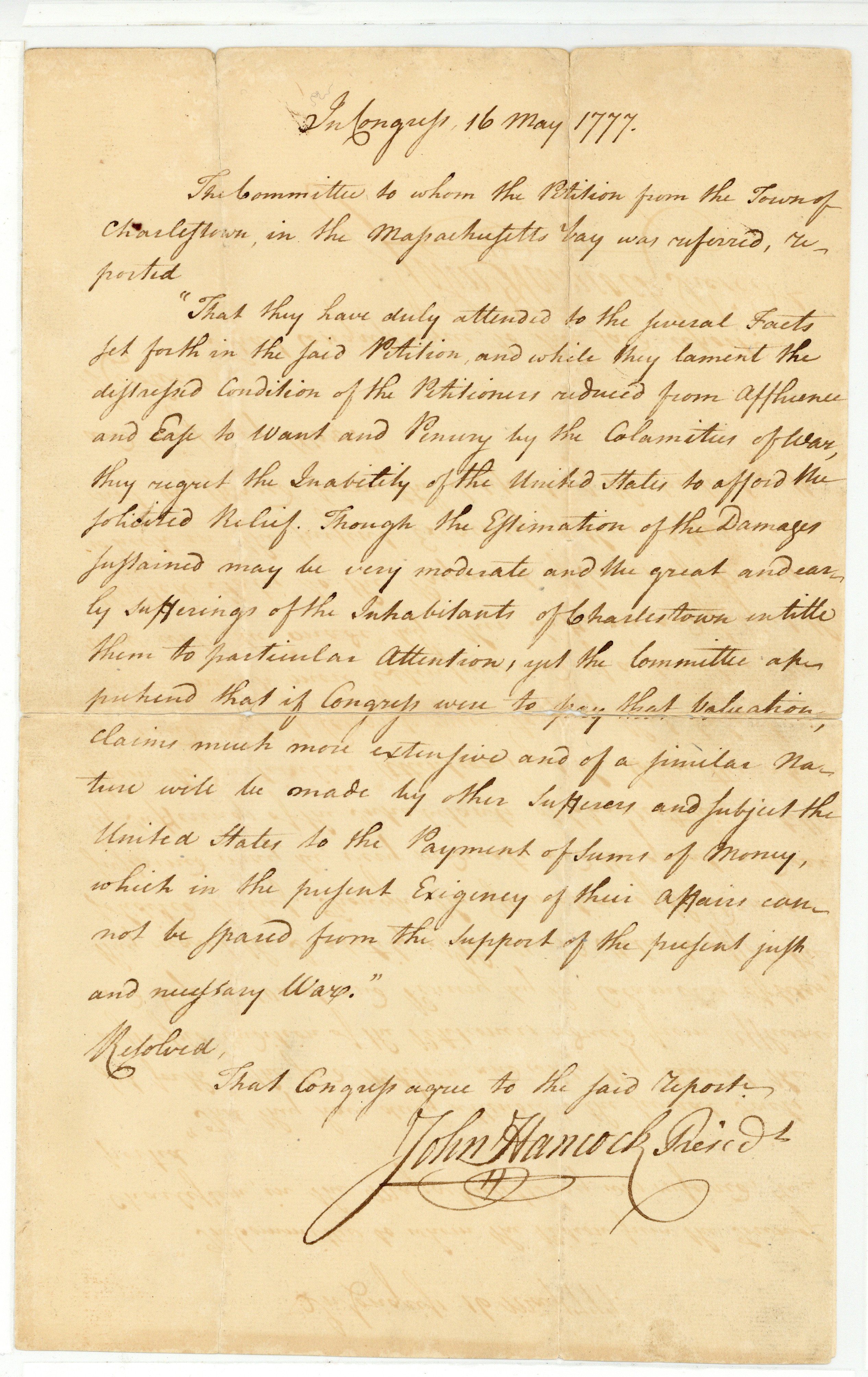Notes from the Archives: #onthisday in 1737, John Hancock is born
On this day in 1737, John Hancock was born in Braintree, Massachusetts.
The Continental Congress wrote back to Charlestown that they “lament[ed] the distressed condition of the petitioners” but that the Congress had an “inability” to send money to Charlestown. The Congress wrote that if they were to send money, “claims much more extensive and of a similar nature will be made by other suffererers and subject the United States to the payment of sums of money…which cannot be spared from the support of the present, just, and necessary war.”
We don’t know exactly how John Hancock felt about denying a request for relief from his home state, but the records of the Continental Congress record:
“ There was a great Deal of Delicacy shown thro the whole Debate upon this Subject, every one wished it was in the Power of Congress to grant the desired Relief; most acknowledged the Justice of the Demand; but, all agreed that, at present, it would be impolitic to grant it—except the Delegates from the Massachusetts Bay”
Shortly after signing this letter in October of 1777, Hancock requested a leave of absence from the Continental Congress and returned to Massachusetts where he joined the state’s House of Representatives. He returned to the Continental Congress for a brief period, but again returned to Massachusetts in 1780, and was elected the governor of the Commonwealth.


